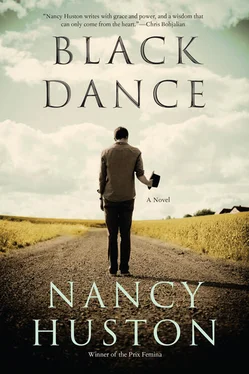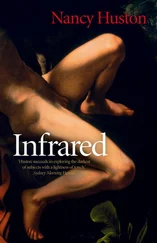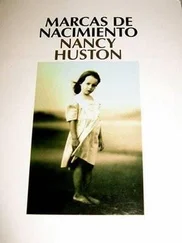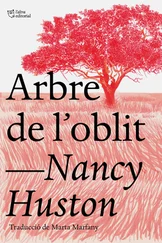ON THIS BRILLIANT autumn Sunday afternoon, Grandpa Neil has invited him up to his study to talk. Both the wilting, faltering old man and the budding young one take pleasure in their exchanges. Neil’s natural gift for the gab is reinforced by his aching, impatient hunger to speak English. He sees Milo as an unhoped-for reincarnation of his younger self, and because his own writing path has grown dark and twisty over the years, running into one wall after another, his fondest hope is to help his grandson carve out a destiny that will lead him straight to literary fame.
“So did you manage to read Hamlet since last week?”
“Yes.”
“And?”
“There’s a lot I don’t get. Why can some folks see his fader’s ghost and oders not? How does he tink he can venge his fader’s murder by pretending to be crazy? Why’s he so nasty to Ophelia?”
Neil wasn’t expecting these thorny questions, so he goes ahead with the short lecture he’d prepared.
“Well, you see, Milo, generally speaking, people don’t want to be told the truth, they want to be reassured. Often, if you tell them the truth, they’ll get angry and punish you. They prefer dogma to science. Science tends to be depressing, because it shows us we’re not as important as we think. Nowadays, everyone learns in school that our Earth is one of nine planets that revolve around the sun, right? But four hundred years ago, Copernicus shocked all of Europe by suggesting that this might be the case. People were certain that God had made the universe just for us, with the Earth at its center and the sun, moon and stars revolving around it. The Italian astronomer Giordano Bruno was burned at the stake in 1600 for confirming Copernicus’s theory, and a mere two years later, Shakespeare wrote Hamlet ! You recall that Prince Hamlet attended the University of Wittenberg? Well, a student of Copernicus’s named Georg Joachim was teaching there at the time, so naturally Hamlet would have been obsessed with all these new theories. Indeed, he describes the Earth as a sterile promontory , the sky as a foul and pestilent congregation of vapours , and man. . yes, Milo, man himself. . as a quintessence of dust . Never had anyone dared express so dark a view of humankind.”
“It’s not dat different from what de preacher says,” Milo objects. “Dat we’re made of dust. Ashes to ashes and dust to dust .”
“Hmm.”
Again unsettled by his grandson’s sharpness of mind, Neil takes refuge in free association.
“You know, when I was a boy growing up in Dublin, all the church services were in Latin, and on Ash Wednesday the priest would dip his right thumb into an urn of ashes, go along the altar where we choirboys were kneeling and make the sign of the cross on our foreheads, intoning the words Memento homo quia pulvis est . Know what that means, Milo?”
Neil writes it down for his grandson.
“Uh. . is it about men who like other men?”
“. . because of the word homo ?”
Neil laughs until tears roll out of the corners of his eyes and down his cheeks, losing themselves in his long gray beard.
“You’re right. In Greek homo means same , as in homogenized milk . But in Latin it means man , as in. . er. . homicide . Quite a mishmash, eh? So the priest’s words mean, not Don’t forget to move your pelvis, you little queer , but Man, forget not that thou art dust .”
Milo nods a bit uncertainly.
“Remember that book I showed you by the great James Joyce?” Neil plunges on, forgetting to pursue his demonstration of how Hamlet’s nihilism arose from Copernicus’s heliocentric theory. “The one in which he inscribed my name?”
“ Dubliners ,” says Milo, who forgets nothing.
“Exactly. Well, there’s a funny story about that book. You’ll see the connection in a minute.”
Settling back in his armchair, Neil takes a minute to light his pipe, delighting in the ease of their exchange.
“You see, Jimmy Joyce had one devil of a time getting that book published; it took him all of seven years! He wrote it in 1907–1908, and it was two whole years before he found a publisher for it. Finally, in 1910, he signed with a certain Mr. Roberts. But then he went off to live in Europe, and due to all the real names of businesses and all the dirty words he used in the book, Roberts started worrying about libel suits. So he hemmed and hawed and postponed and delayed, and Joyce threatened to sue him for breach of contract. Believe it or not, Milo, the case was handled by my own father, a magistrate of the Dublin courts!”
(Did Neil really tell you lies as flagrant as that, Astuto? Or are you stretching the truth of his stretching of the truth? Anyway, let’s keep it in— se non è vero, è ben trovato. .)
“Court cases take time. . But finally, when Jimmy returned to Dublin for his mother’s funeral in 1912, everything was set to go: the printer, a man by the name of Falconer, had already churned out the broadsheets for a thousand copies of the book. Do you know what a broadsheet is, Milo?”
“One big page that’ll later be folded and cut up into lots of smaller pages?”
“On the nose. But on the very verge of publication, getting cold feet in turn, Falconer decided to shred the broadsheets. Well, when Jimmy learned of that, Milo, he went berserk. He told everyone his book had been burned , not shredded. That way he could compare himself to the great Giordano Bruno. Yes! James Joyce had been burned at the stake for having told the truth, not about the rotation of heavenly bodies, but about the everyday life of ordinary Irishmen. A bit of an exaggeration, wouldn’t you say? As if Rome and Dublin were the same city, Pope and publisher the same authority, Bruno and Joyce the same man.”
“Homo homo ,” Milo says, and again Neil rewards him with a roar of laughter.
“So what did Joyce do to punish Roberts? He wrote a cruel, castigating poem called “Gas from a Burner.” I have a copy of it here somewhere. . ah, here it is. Burner , in the present case, refers not to your usual gas ring on a kitchen stove but to Roberts himself, because he burned Joyce’s book. As for gas , well. . it’s like when you have gas after eating pork ‘n’ beans. You understand? Roberts’s promises, in other words, were nothing but a lot of stenchy farts! Jimmy had the poem printed in Trieste and insisted that his younger brother Charles distribute it in Dublin. Charles did so against his better judgment, and my cousin Thom, who as you recall was a former schoolmate of Jimmy’s, got his hands on a copy and brought it to my place. Ah, Milo, that’s a day I’ll never forget! We weren’t wee lads anymore, I was twenty and Thom a decade older, but we fell to the floor in stitches when we reached the final lines of poem:
My Irish foreman from Bannockburn
Shall dip his right hand in the urn
And sign crisscross with reverent thumb
Memento homo upon my bum.
“Milo? Milo?”
Marie-Thérèse’s angry voice soars up to our hero from downstairs.
“Where are you, for the luva. .? It’s goin’ on four and you haven’t even started your homework yet! That’s enough English! Get down here right this minute! Lickety-split!”
As he goes downstairs to do math under his aunt’s maniacal supervision, Milo breathes a faint sigh of relief. He worships his grandfather, so it disturbs him when Neil talks to him as an equal. .
I LOVE YOU, Milo. I love you. I want to make love to you here and now. I want to take off all my clothes and your hospital pajamas and gently unhook the tubes from your body and kiss you all over as you grab my hair and pull it — kiss your eyelids, your face and lips, kiss your neck as you offer it up to me, kiss your hairless chest and feel your beautiful penis rise in my hands and harden in my mouth, turn you over and kiss the smooth brown skin of your muscular back, wet you with my fingers as you moan, and enter you. . Oh, Milo! If only we could join our bodies again, as we’ve done so often in the past — in New York, arriving you from Toronto and me from Buenos Aires, or in San Salvador, arriving you from Paris and me from L.A. — pleasuring each other’s throbbing, searching cocks with our mouths and hands and anuses, whetting each other’s appetites, whipping each other’s desires, rising together to a violent frenzy, and oh, your shout when you came, Milo, unforgettable, a punch of joy that hit me right in the chest. . How can it be over? How can this be us , you know what I mean? Two old fogies whispering a screenplay at each other through an endless November night in a public hospital in Montreal’s city center. . and you, my love, in the throes of the dreaded illness?
Читать дальше












